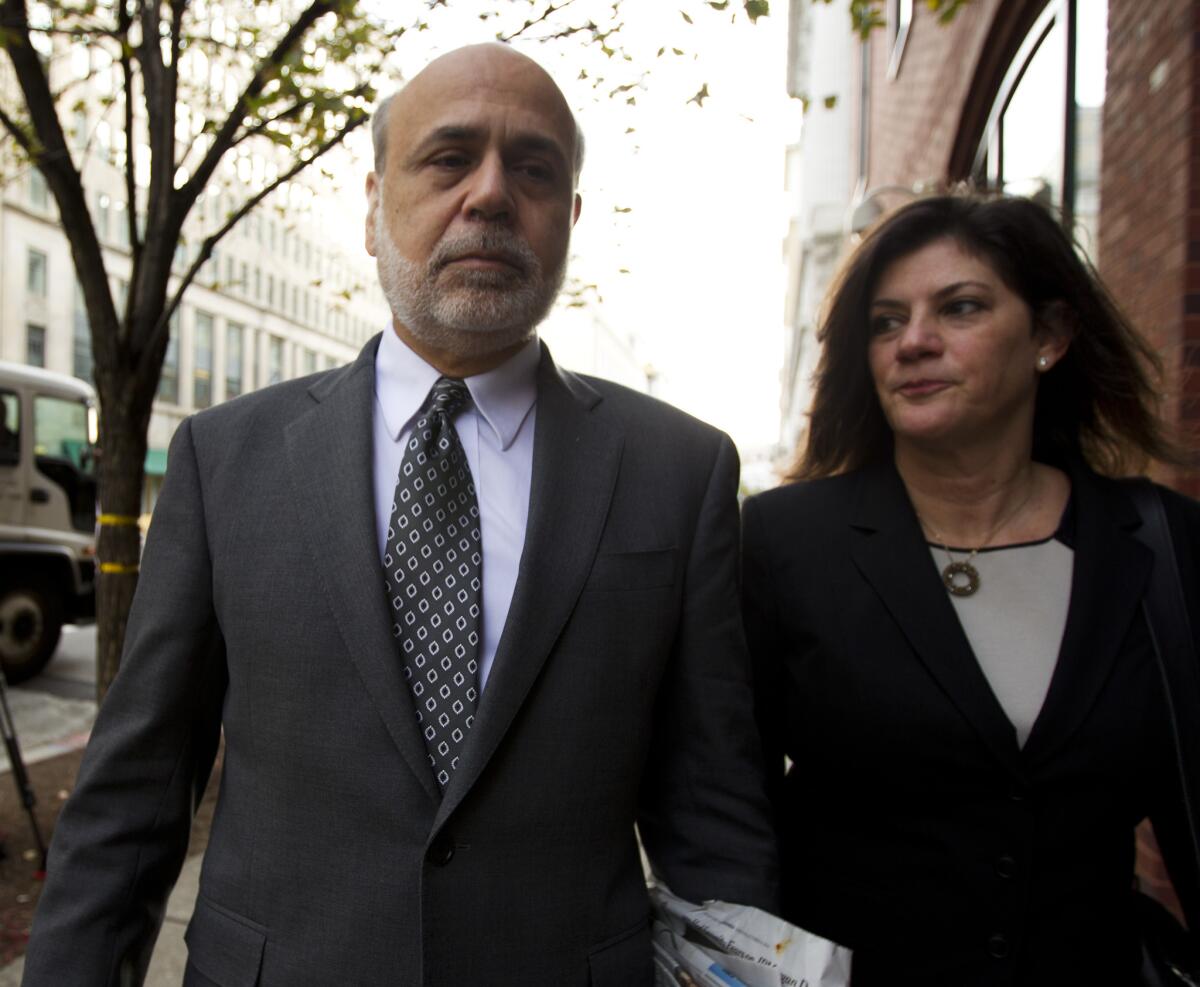Editorial: AIG shareholders’ lawsuit: A strong aroma of hubris

- Share via
Imagine you were a swimmer who’d recklessly gotten caught in a riptide, only to be saved by a boater who was busily helping other struggling swimmers to shore. Would you complain if the boater charged you a big fee? Maybe. But you almost certainly wouldn’t sue the boater for not offering help sooner.
Some shareholders in American International Group have no such compunction. In a federal lawsuit now being heard in Washington, they accuse the U.S. government of withholding the low-cost financing AIG needed to overcome its cash-flow problems, even though the government was providing that help to other troubled Wall Street firms. They also claim that the bailout eventually extended to the company was so punitive to them and AIG that it violated the Constitution.
Although a federal judge found the shareholders’ claims serious enough to merit a trial, it’s hard to ignore the overpowering aroma of hubris. As costly as the bailout was to shareholders, they almost certainly would have been left with nothing had AIG not been rescued. Banking analysts say AIG was doomed by the housing-backed securities and derivatives it held after the subprime mortgage meltdown, and it couldn’t have avoided bankruptcy had the government not lent it $85 billion the day after Lehman Bros.’ catastrophic collapse in September 2008.
The bigger issue highlighted by the lawsuit, though, is the fact that federal officials and bank regulators were acting without a script as they scrambled to prevent financial companies from tumbling like dominoes and deepening the recession. In the heat of the crisis, they had to make judgment calls about which institutions were too big to be allowed to fail and which ones weren’t. That discretion is at the heart of the shareholders’ lawsuit.
Ultimately, the better solution is to let failing financial companies fail. That means having mechanisms in place that discourage these companies from becoming so big that the economy depends on their survival, and that protect their trading partners from being dragged down with them into bankruptcy. Congress and global banking regulators have made progress toward both goals, but the AIG lawsuit should prod regulators to make sure that companies can safely be allowed to fail.
Follow the Opinion section on Twitter @latimesopinion
More to Read
A cure for the common opinion
Get thought-provoking perspectives with our weekly newsletter.
You may occasionally receive promotional content from the Los Angeles Times.






